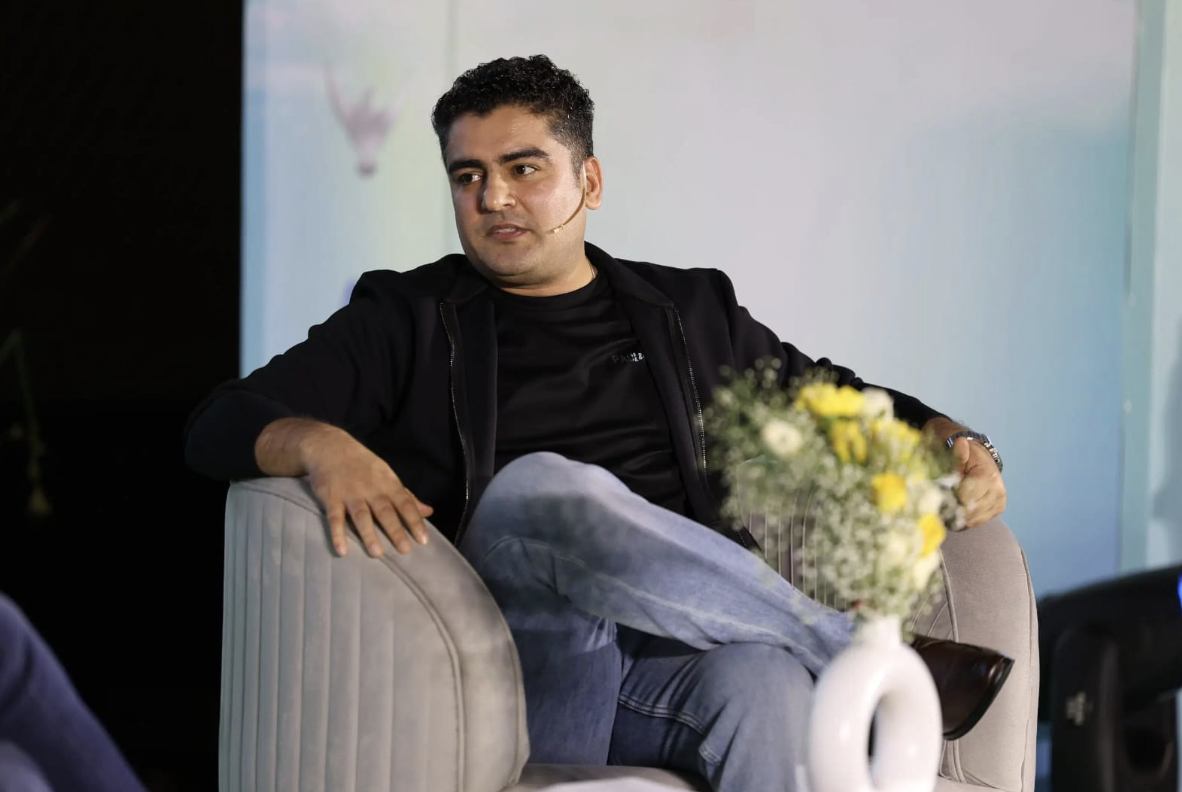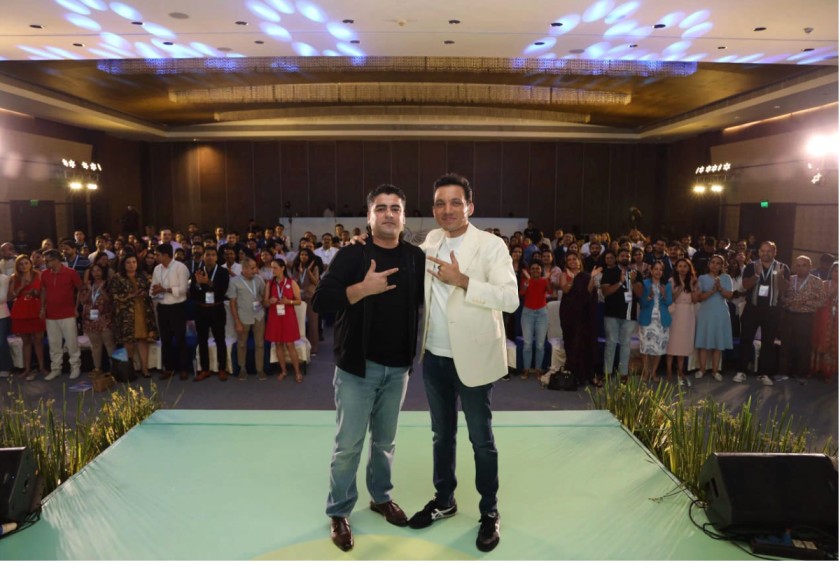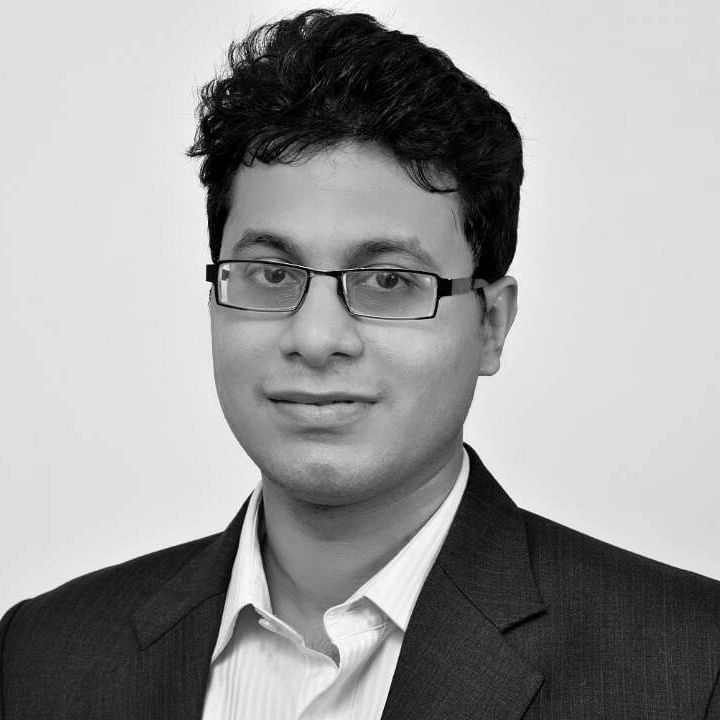India's personal coaching revolution: Inside the ₹10,000 crore industry that's redefining success
How a kidney stone changed one man's life—and sparked insights into India's fastest-growing knowledge economy

Picture this: It’s 2007, and a young professional is doubled over in pain from recurring kidney stones. Fast forward to 2025, and that same person has built a thriving coaching business with nearly 20,000 community members worldwide.
This isn’t just another success story—it’s a window into India’s personal coaching revolution, where traditional boundaries between teacher and student, offline and online, ancient wisdom and modern delivery are being rewritten entirely.
I recently sat down with Vishall Saini, founder of GoNature, to understand what’s really happening beneath the surface of India’s booming coaching industry. What emerged was a fascinating portrait of an economy built on trust, transformation, and human connections.
When crisis becomes calling

📸 In the picture: Vishall Saini
“I searched online, experimented, and discovered naturopathy,” Vishall tells me, reflecting on those painful early days. “Accidentally, just while healing myself, I found my real calling.”
There’s something profoundly Indian about this story—the idea that personal struggle can become universal service. Vishall’s journey from patient to practitioner mirrors what’s happening across the country: ordinary people are discovering they have extraordinary knowledge to share.
By 2014, he had established his first clinic, working entirely offline. Then came 2020.
“Before COVID, my work was offline and the growth was slow,” he admits. “But once the lockdowns hit, people moved online—to Google, Facebook, Instagram, YouTube. That completely changed my momentum.”
The pandemic didn’t just accelerate digital adoption; it fundamentally altered how Indians think about learning, healing, and personal development.
Beyond medicine: The philosophy of natural transformation
What strikes me most about Vishall’s approach isn’t just the natural healing—it’s his philosophical stance toward existing systems.
“We truly respect all forms of medicine—Ayurveda, homeopathy, allopathy, everything,” he explains. “But the truth is, lifestyle change is the foundation. If you fix your diet and habits, most diseases can be reversed naturally.”
This isn’t anti-establishment rhetoric; it’s complementary thinking. And perhaps that’s what makes Indian coaching unique—it doesn’t seek to destroy existing systems but to fill the gaps they leave behind.
Consider this sobering statistic Vishall shares: globally, iatrogenic deaths (caused by medical treatment) rank as the third leading cause of death. “If those were tracked in India,” he notes, “the numbers would be shocking.”
It’s not about replacing doctors; it’s about empowering individuals to take charge of their own wellness journey.
The COVID effect: When everyone became a student
The pandemic created what I like to call “The Great Democratization of Learning.” Suddenly, your yoga teacher, nutritionist, and business mentor were all available through the same device you used for Netflix.
But here’s where it gets interesting—not everyone thrived in this new landscape.
“Many promised big results but couldn’t deliver,” Vishall observes. “Some lacked strong content or the ability to stand out from competition. Sustainability came only to those who had genuine value to share.”
The coaching boom also created its first casualties. The market quickly separated the wheat from the chaff, and what emerged was a crucial insight: authenticity beats everything and only a few were able to generate real tangible outcomes for their end customers
“This industry is not for everyone,” Vishall says with the confidence of someone who’s seen both sides. “Only coaches with real results, strong content, and a human-to-human connection survive. The real power lies in community.”
Today, his GoNature community buzzes with daily engagement—people sharing victories, asking questions, supporting each other’s journeys. It’s less like a course and more like a movement.
The Master Coach phenomenon
Perhaps the most fascinating development in India’s coaching ecosystem is the emergence of what I call “Master Coaches”—practitioners who don’t just teach their subject but mentor others to become successful coaches themselves.
When I ask Vishall about this meta-layer of coaching, his response is refreshingly honest: “In the coaching world, this is the business of knowledge. I have certain knowledge, but to monetize it, I needed a mentor. Without guidance, I would have been lost.”
He points to Siddharth Rajsekar, founder of Internet Lifestyle Hub, as a pivotal figure in this evolution.
📸 In the picture: Vishall Saini and Siddharth Rajsekar

“Back in 2015–16, when nobody knew what this online market even was, he built a community. He doesn’t sell dreams, he shows the path and walks with you, step by step.”
This brings up a crucial point: the best coaches aren’t necessarily those with the most knowledge—they’re the ones who can create the most transformation. And transformation, it turns out, requires more than information.
The Google vs. Guru question
In an age where ChatGPT can write your business plan and YouTube can teach you everything from advanced calculus to traditional cooking, why do people still pay for coaches?
Vishall’s answer is beautifully simple: “We all know how to cook at home, but we still go to restaurants for the experience and the environment.”
Information is abundant; transformation is rare. And transformation requires what technology can’t provide: accountability, encouragement, community, and that indefinable human element we call trust.
“Doctors say diabetes can’t be reversed,” Vishall shares, “but we’ve shown thousands of people bring their sugar levels back to normal. When people see those results, trust is built naturally.”
This is where Indian coaching shines—it’s not just about knowledge transfer; it’s about creating ecosystems where people feel supported, inspired, and accountable.
Looking ahead: The Nalanda renaissance
When I ask Vishall about the future, his eyes light up with genuine excitement.
“This is the future,” he says without hesitation. “Despite the surge of new coaches in recent years, India has barely scratched the surface—less than 1% of the potential market has been tapped.”
He draws a fascinating historical parallel: “India has always been a giver of knowledge. Now the world is trusting us again. Whether it’s ancient practices like breathwork or even someone teaching the flute online to a global audience, Indian coaches are proving their value.”
Like Nalanda’s ancient scholars crossing continents for wisdom, today’s learners traverse digital highways to Indian coaches—same quest, new medium.
The numbers support his optimism. The global coaching market is projected to reach $20 billion by 2025, and India’s share is growing exponentially. But more than the economics, there’s a cultural shift happening—a return to the guru-shishya tradition, reimagined for the digital age.
The bubble question: What could go wrong?
No conversation about a booming industry is complete without addressing potential pitfalls. Vishall is refreshingly candid about the challenges ahead.
“The biggest risk I see is oversupply,” he admits. “Between 2019 and 2020, it felt like magic—you’d spend ₹1 on ads and make ₹5 back, sometimes even ₹70 on ₹2. But as more coaches entered the market, ads got crowded, costs shot up.”
This rapid growth has brought its own challenges—an influx of practitioners who may not fully understand the depth of commitment required to create genuine transformation. It’s a natural growing pain in any industry experiencing explosive expansion.
But Vishall remains optimistic: “The market will clean itself. Over time, only those who are consistent, deliver genuine results, and build trust will survive.”
He predicts a shift away from paid advertising toward word-of-mouth and referral systems. “When a service truly helps someone—a diabetic, a cancer patient, or a professional struggling with performance—they naturally share it with others. That kind of authentic endorsement is priceless.”
The bigger picture
As our conversation winds down, I’m struck by something profound: India’s coaching revolution isn’t just about business or even education—it’s about reclaiming agency.
In a world where traditional institutions often feel distant and impersonal, coaching offers something different: personalized guidance, community support, and the promise that transformation is possible.
Whether it’s a former corporate executive teaching stress management, an entrepreneur teaching homemakers to start a cooking / baking business online, or someone like Vishall turning personal healing into a mission—these coaches are filling gaps that formal systems leave behind.
They’re not replacing universities or skilling centres; they’re creating bridges between ancient wisdom and modern needs, between individual struggles and collective solutions.
Running a personal coaching business and struggling with fee collection?
Jodo helps personal coaches collect their fees on time—without the hassle. Book a free demo today to see how it can work for you!
Coming Next: In Part 2 of this series, we’ll explore the practical side of this revolution—how aspiring coaches can build sustainable businesses and what tools and platforms are shaping the industry’s future. From fee collection solutions to community building strategies, we’ll dive deep into what it takes to succeed in India’s coaching economy.
This is Part 1 of our deep-dive series into India’s personal coaching industry. For insights into the tools, strategies, and business models shaping this space, stay tuned for Part 2.
For more insight, connect with the author, Jodo Co-founder, Koustav Dey on LinkedIn.





